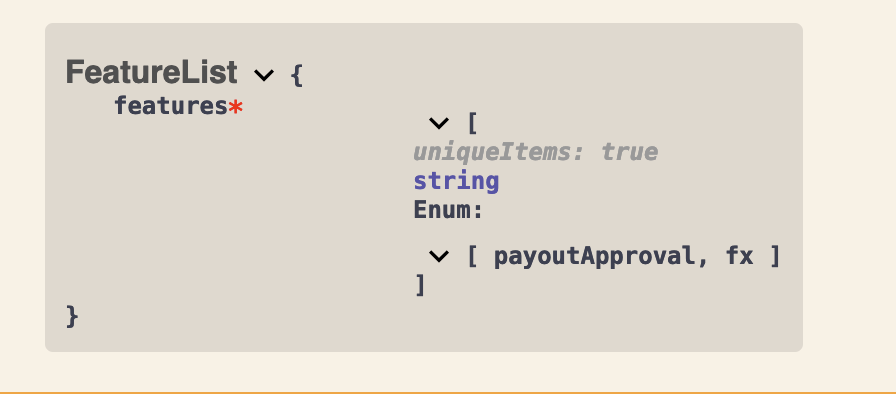-
-
Notifications
You must be signed in to change notification settings - Fork 534
Closed
Labels
questionFurther information is requestedFurther information is requested
Description
Versions:
spring boot 2.7.4
java 17.0.4
springdoc-openapi-ui:1.6.14
Currently Enums are "translated" using their .toString()method.
public enum CustomerFeature {
PAYOUT_APPROVAL("payoutApproval"),
FX("fx");
private String name;
CustomerFeature(String name) {
this.name = name;
}
@Override
public String toString() {
return name;
}
}
Describe the solution you'd like
This current workaround is to add @JsonProperty(value = "Foo") to each Enum value, but I think using Enum.name() would be better solution just as proposed and fixed in Springfox springfox/springfox#2860
roded, MFMentopolis and KirillSmirnow
Metadata
Metadata
Assignees
Labels
questionFurther information is requestedFurther information is requested
